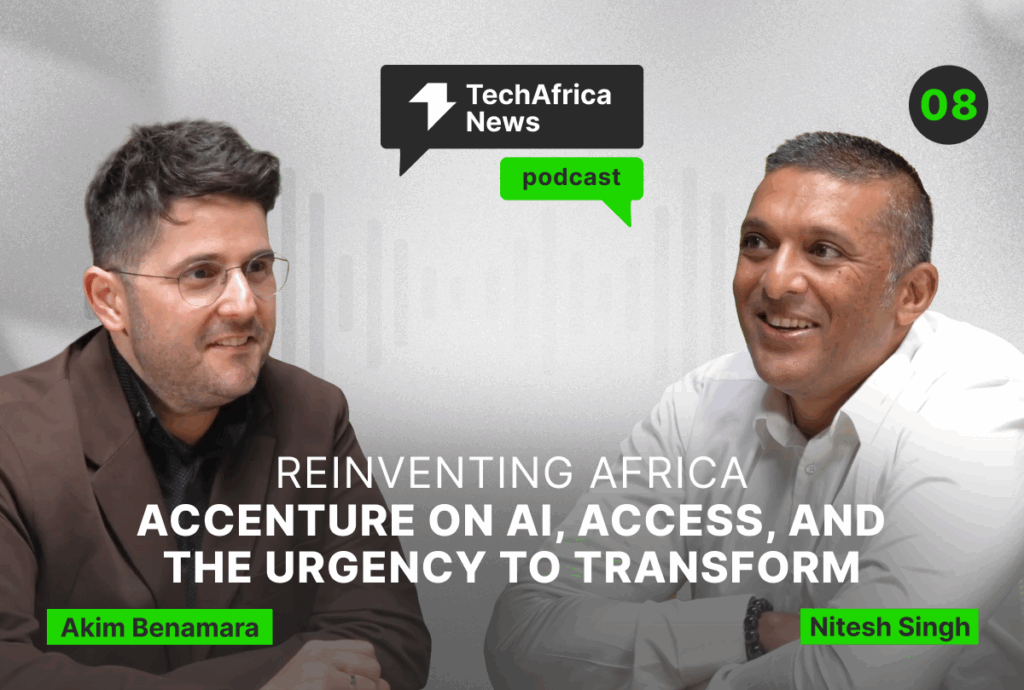Upskilling Africa: How Africa Can Compete in the Fourth Industrial Revolution
The Fourth Industrial Revolution is no longer on the horizon. It is here, changing industries, creating new roles, and making others obsolete. Automation, artificial intelligence, cloud computing, and advanced manufacturing are redefining work and economic growth worldwide.
The Future of Jobs Report 2025 projects that 92 million jobs will be displaced by 2030, equal to 8 percent of today’s workforce. Broader digital access could displace 9.1 million jobs. Advances in AI and information processing are expected to remove another 9.1 million. Robotics and autonomous systems are set to have the largest impact, with 5.5 million jobs lost. In this environment, skills will be the deciding factor between opportunity and exclusion. Without digital competencies, workers risk being pushed into low-quality employment.
Some regions are acting fast. European countries are investing heavily to prepare their citizens, particularly young people, for the jobs of the future. Africa, however, still lags in building the needed skills.
This gap is not permanent. Africa’s youthful population is one of the fastest-growing in the world and could be a competitive advantage not only within the continent but in the global marketplace. In 2020, Africa accounted for 22.7 percent of the world’s youth, making it the second-largest youth demographic after Asia. That is roughly one billion people under 35, including 540.8 million aged 0–14 and 454.5 million aged 15–34. By 2030, African youth will make up an estimated 42 percent of the world’s youth population. If equipped with the right skills, this generation could be a driving force in shaping the global digital economy.
In this week’s #TechTalkThursday, we look at the urgent need to upskill Africa’s workforce for the Fourth Industrial Revolution, the risks of inaction, and the strategies to turn a skills gap into a skills advantage.
Africa’s Youth Advantage – and the Risk of Being Left Behind
Each year, millions of Africans enter the labour market seeking better livelihoods. By 2030, an estimated 321 million young people will be looking for work, up from 250 million today. But too many will do so without the skills needed to meet current or future industry demands.
The Fourth Industrial Revolution—driven by artificial intelligence, automation, the Internet of Things, and robotics—is already reshaping industries. In Africa, AI-powered fintech platforms are widening access to credit, drones are delivering medicine to rural areas, and precision agriculture is using smart sensors to boost yields. Yet while the technology accelerates, readiness lags.
The skills gap is now one of the biggest barriers to Africa’s economic progress. Across the continent, 63% of employers cite talent shortages as their top obstacle to transformation—rising to 80% in Tunisia and over 60% in South Africa. In the Middle East and North Africa, 46% of workplace skills will need to change by 2030, with Egypt at 48% and Zimbabwe close behind.
The numbers reveal the scale of the challenge. Only 61% of adults in Sub-Saharan Africa can read and write with understanding, one of the lowest literacy rates globally. Digital literacy is even more limited: fewer than 5% of Sudan’s youth can complete basic computer tasks, and Morocco sits below 45%. STEM graduates represent just 2% of the university-age population, and high-skilled workers account for only 6% of employment—compared to a global average of 24%.
As Lacina Kone, CEO of Smart Africa, highlighted in a TechAfrica News podcast episode:
“AI will not replace jobs. People who adapt to the AI will replace people who do not adapt to AI…There’s a statistic: by 2050, 40% of the world workforce would be in Africa. We talked about the educated Africans, that’s where the skills, reskilling, upskilling comes into play. We will never reach that point if we don’t go and rescale ourselves on the emerging technology.”
– Lacina Kone, CEO, Smart Africa
Access to quality education and digital tools remains uneven. Many schools lack computers and reliable internet. Tertiary enrolment in Sub-Saharan Africa is just 9%, far below the global average of 37%. Only 10–15% of young people have access to structured digital education, and fewer are trained in advanced skills like programming, data analysis, or cybersecurity. Gender gaps persist, risking the exclusion of half the talent pool from the industries driving the future.
Yet the potential is equally stark: the Brookings Institution estimates 650 million digital training opportunities could be created in Africa by 2030, unlocking $130 billion in economic value.
The shift is already here. Whether Africa’s young, growing workforce becomes a driver of global competitiveness—or a casualty of the skills divide—will depend on how urgently the continent invests in education, reskilling, and inclusion.
In an interview with TechAfrica News at the recent AAfrica Digital Parliament Summit in Lusaka, Kenechi Okeleke, Senior Director Regional at GSMA emphasised the importance of upskilling and readiness saying;
“Up to about 90 million jobs may be affected, but iit could create another 140 million jobs. But the precondition for that is the readiness, the training, the reskilling and upskilling.”
– Kenechi Okeleke, Senior Director, Regional, Social and Policy Research, GSMA
What Must Be Done to Prepare Africa’s Workforce
What makes this interesting is that the solution cannot come from a single actor. It requires all hands on deck. It cuts across every sector and demands coordinated action from governments, companies, civil society, universities, and communities.
Governments must set direction and fund scale. National digital skills strategies and public training programmes should be designed to meet market demand, not academic tradition. Where state capacity is limited, smart use of public funding to leverage private investment and philanthropic capital will extend reach and lower costs. The World Economic Forum stresses that employers and governments must align on workforce priorities if transformation is to be realised.
Public and private actors must form genuine partnerships. Tech firms can supply curricula, certifications, internships, and job-matching systems. NGOs and community organisations can extend training into underserved areas. Universities and technical colleges must redesign curricula so graduates leave with both technical capabilities and workplace-ready experience. International cooperation can speed infrastructure investment and knowledge transfer. These partnerships are central to any credible national strategy .
Ghana is another example in this regard. At the MWC2025, the Ministry of Communications, Digital Technology, and Innovation signed a landmark MOU with MTN Ghana to advance AI, cybersecurity, and digital skills for young Ghanaians. The partnership will support the ‘One Million Coders’ initiative, establishing a center of excellence for AI and software development in the newly donated MTN building. This collaboration highlights the potential of government and private-sector alignment to accelerate workforce readiness.
“When the government sets an ambitious goal—like training one million people over the next four years—it cannot be achieved by government intervention alone. Public-private partnerships are essential to making this vision a reality”
– Honourable Samuel Nartey George, MP, Minister of Communications, Digital Technology, and Innovations, Ghana
“We must develop our own talent, our own software engineers, and do more around coding to ensure that young people in Ghana have opportunities not only in Ghana but all over the world.”
– Ralph Mupita, President and CEO, MTN Group
Technology must be used to widen access. Affordable, mobile-first learning platforms, modular microcredentials, and remote apprenticeship models can reach learners beyond city centres. Community tech hubs and vocational centres should combine practical instruction with employer-led placements. Lifelong learning must replace the assumption that schooling ends with graduation. Employers must invest in upskilling their staff so learning becomes standard workplace practice rather than a luxury.
Soft skills matter as much as technical skills. Adaptability, communication, problem-solving, and creative thinking enable workers to move between roles and industries. Training programmes that combine technical modules with project-based work produce more resilient graduates and reduce the risk of rapid obsolescence.
There are signs of progress, but they are not yet sufficient. Rwanda’s Smart Rwanda programme and associated master plans have pushed internet and ICT in schools as part of a long-term plan to build a knowledge economy. Nigeria has launched an ambitious 3 Million Technical Talent programme to accelerate training in high-demand digital fields and create a talent pipeline for the region. Major technology firms are also stepping up. Microsoft has announced plans to train 1 million South Africans in AI and cybersecurity by 2026 and has already trained millions across the continent.
These efforts matter because they prove what works at scale, but they are still early steps relative to the challenge. The gap will not close without vastly greater public funding, serious private sector commitments, and an organised regional push that pools resources and standards. In short, solving this will require cooperation at national, regional, and global levels.
If Africa’s leaders, companies, and communities act together, the continent’s youth can become a global competitive advantage. If they fail to act, the Fourth Industrial Revolution will widen existing divides. The choice is clear. The work must begin now.





